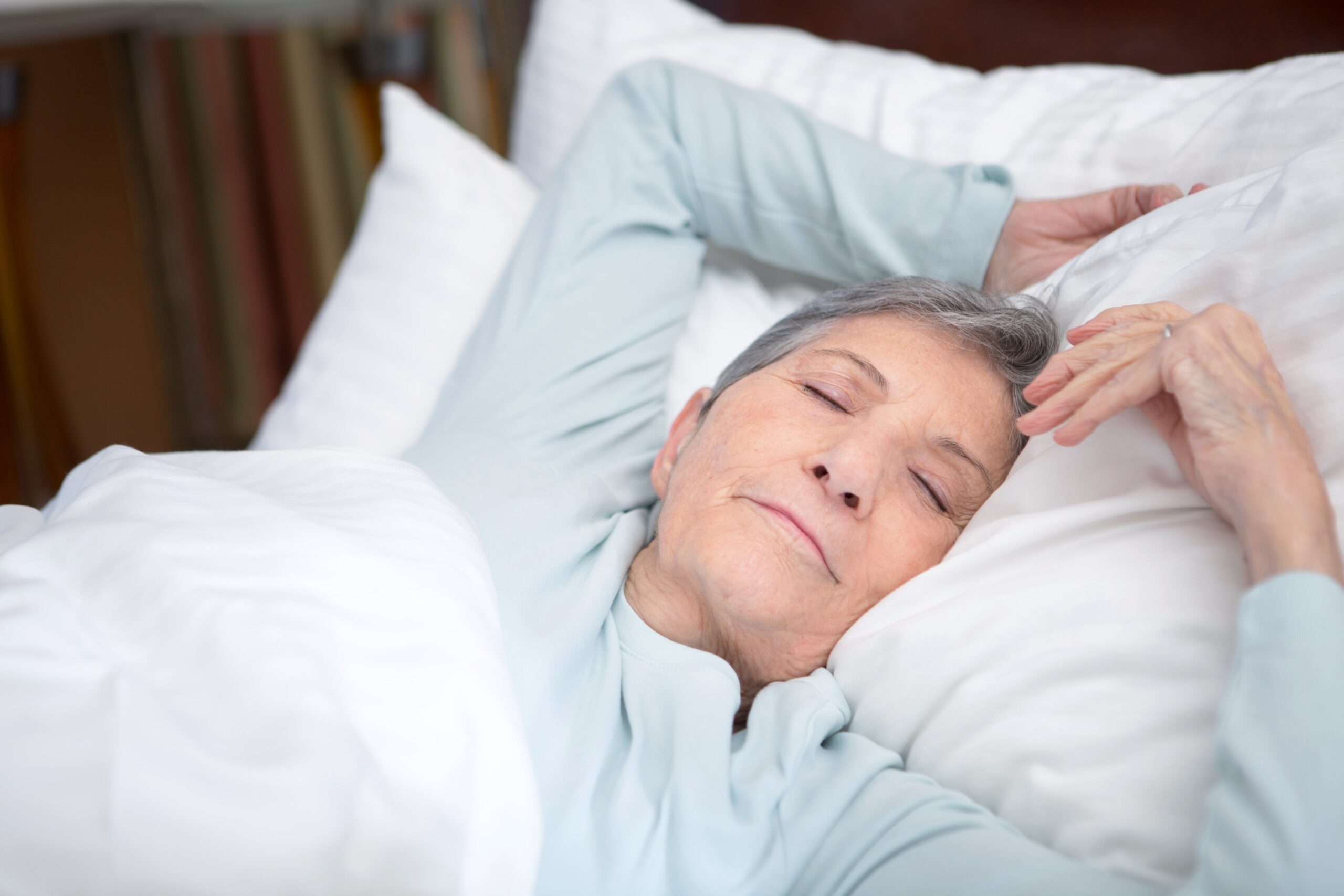Did you know that difficulty sleeping is a common problem for many seniors? You aren’t alone if you’re having trouble getting a full night’s rest in your golden years. Learn about common sleep disorders in older adults and what you can do about them.
Understanding Common Sleep Disorders in Older Adults
It may sound surprising, but it’s true: over half of all seniors report having some issue with sleeping or getting adequate rest. Why do so many seniors struggle with sleep? There are plenty of reasons that healthy, restful, and consistent sleep can be a difficult thing for seniors to achieve:
- Seniors who have chronic physical pain conditions like arthritis often have their sleep cycles disrupted by their condition. Mental health conditions like anxiety can also make sleep difficult.
- Some common senior medications have insomnia or disrupted sleep as a potential side effect.
- Some seniors have undiagnosed sleep disorders. These disorders, combined with the factors listed above, can make getting the right amount of sleep confusing and frustrating.
If you’re a senior who is trying to improve your sleep, doing things like getting more exercise and working on your sleep hygiene can help. However, if you have an undiagnosed sleep disorder, your efforts to improve your sleep will only be so successful. Knowing how to spot common sleep disorders in older adults can help you understand the issue you’re dealing with and get the help you need.
Obstructive Sleep Apnea
One of the most common sleep disorders in older adults is obstructive sleep apnea. Sleep apnea occurs when a person’s breathing is interrupted throughout their sleep cycle. This creates a sleep/wake-up pattern that recurs throughout the night, making deep and restful sleep difficult. Sometimes sleep apnea presents as consistent snoring or repeatedly waking up during the night. People with sleep apnea tend to feel tired no matter how much sleep they get and can also be cranky and irritable because of the lack of rest. It’s estimated that up to sixty percent of seniors have some form of sleep apnea.
Restless Leg Syndrome (RLS)
Restless Leg Syndrome occurs when a person feels physically uncomfortable sitting or lying down unless they are able to move their legs while they do so. The overwhelming urge to move their legs may be accompanied by physical sensations, like tickling or itching, that are relieved by movement. The causes of RLS are unclear, but it becomes increasingly common after middle age, and RLS can make it difficult to get restful sleep.
Circadian Rhythm Sleep Disorders
Have you ever wondered how your body knows that it’s time to go to sleep? Our bodies have an internal clock that governs our sleep and wake-up patterns. That clock is referred to as a circadian rhythm, and it relies on different kinds of environmental stimuli to be “set” correctly, such as sunlight and meal timing. As we age, our internal clocks are thrown off more easily. Disruptions in circadian rhythm can become sleep disorders if they are persistent and untreated.
_____
Do any of these common sleep disorders in older adults sound familiar to you? If so, talk to your doctor about scheduling a sleep study. A good night’s sleep is waiting for you.
Are you seeking an assisted living, memory support, or physician-directed nursing community in Kansas City? Check out The Piper. Our team of experienced and compassionate professionals ensures that residents feel secure and comfortable right away. At our warm and welcoming community, which is truly a “home within a home,” we foster social interaction, engagement, and the right amount of care. Our residents always come first. To learn more about our services or to schedule a tour, please give us a call at 913-361-5136 or contact us online.

